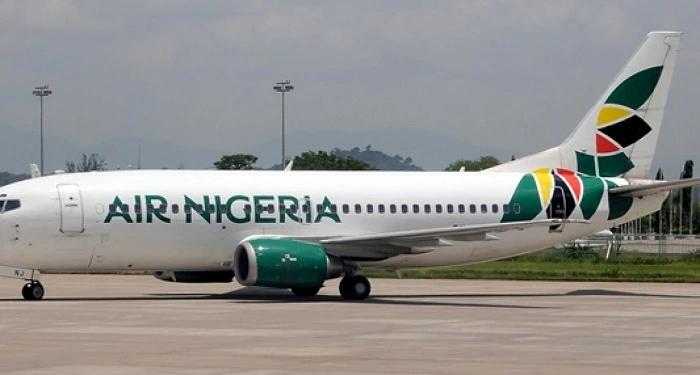- The President of Aviation Round Table (ART) advises the new administration to avoid direct business involvement in sectors like aviation, energy, oil & gas, and communication to prevent crises.
- Instead, the government should engage private investors to drive development in the country and form alliances between local carriers to create strong flag carriers.
- It is recommended to review Bilateral Air Service Agreements (BASAs) for competitive reciprocity with full government backing for the proposed flag carriers.
The President of Aviation Round Table (ART), Dr Gabriel Olowo, has advised the new administration of Bola Tinubu to steer clear from any direct business in its bid to develop the economy.
Speaking exclusively to Nairametrics, Olowo said that this became necessary to avoid the crises that befell the country in its attempt to set up a new national carrier.
Apart from aviation, he also opined that the new administration should distance itself from energy, oil & gas, communication and other major sectors of the economy.
What the Government Should Do Instead
According to him, rather than for the government to enmesh itself in any direct business, the government should involve private investors to drive development in the country. He said:
- “Given that the Nigerian nation desires national carrier and the unending accusations and counter-accusations on how and how not to proceed, including court injunctions, labour crisis and others, my recommended solution for the new government is to completely stay clear of doing any direct business at all, be it in power supply, oil & gas, communications, aviation and many others. Rather, drive the solution through private sector stakeholders.”
He Suggested Mergers between Local Carriers
Speaking further, Olowo suggested that the over 20 licensed airline operators in the country should consider forming two or three strong alliances and merge to form the flag carriers.
He opined that each alliance must parade an aircraft fleet size of 50 each, either through direct leases, acquisitions and alliances, among other options.
He said the three carriers would in total parade 150 aircraft to equate to one Ethiopian Airline, which remains the largest carrier on the continent.
Ethiopian Airline today has 144 modern aircraft to more than 150 domestic and international destinations across five continents.

He declared that a large operational fleet and not share capital was the necessary and sufficient condition for good On-Time Performance (OTP) of airlines.
Need to Review Air Service Agreements
Besides, Olowo said all the Bilateral Air Service Agreements (BASAs) needed to be reviewed for competitive reciprocity with full government backing to the proposed three flag carriers, which would reciprocate to all the destinations being currently operated by foreign airlines only.
He expressed that merger policy made the banking sector strong in Nigeria, stressing that such could be replicated in the aviation sector through the Nigeria Civil Aviation Authority (NCAA).
- “Banking regulators made mergers happen successfully in the banking sector, though, with some surgical pain, and today, we can boast of a strong and competitive banking sector.
- “Aviation regulators; NCAA must do the same in this circumstance.
- “Needless emphasising the advantage of three reliable Nigerian flag carriers in terms of economic tariffs, efficient passenger experience, curb brain drains, reduced foreign airline home remittances, reduce unemployment and others.”
What You Should Know
Nigeria’s aviation industry has been in the spotlight in the past week with accusations and counter-accusations on the failed national carrier project.
The former Minister of Aviation, Sen. Hadi Sirika had on Sunday insisted that the total amount of money approved for the project by the last administration in its eight years was about N5 billion, while only N3 billion was spent on it.
He also stated that the Federal Government was not responsible for the static display of the aircraft in Abuja on May 26, 2023, saying that “the shareholders were responsible for it.”
But, industry stakeholders claimed that the government spent about N85.42 billion on the project within eight years, while also insisting that the Ministry of Aviation was responsible for the static display of the aircraft.
Numerous players, especially the Airline Operators of Nigeria (AON) had called on the security agencies to carry out investigations into the conduct of Sirika in the last eight years.
Source: Nairametrics
















